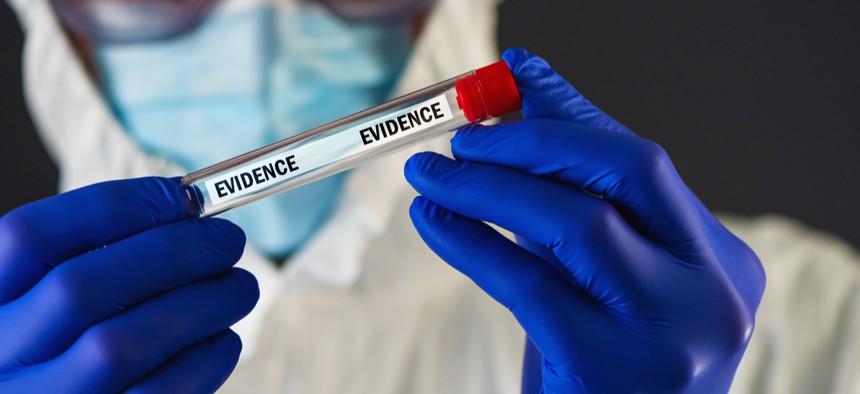DNA Evidence Will be Stored for 50 Years Under New State Law

Extending the storage time is important because it can take years to identify offenders, according to Rep. Scott Holcomb, the bill's main sponsor. Shutterstock
The policy aims to give victims of sexual assault and prosecutors ample time to track down and convict offenders.
Law enforcement agencies in Georgia are now required to store biological evidence collected from sexual assaults for up to 50 years, a legislative change designed to provide ample time to find and prosecute offenders.
The new law, which took effect Monday, changes the previous rule that required agencies to hold onto DNA evidence (including hair, fluids and stains) for 10 years.
That law “was progressive at the time it was passed, but we now know it’s not long enough,” said state Rep. Scott Holcomb, a Democrat and lead sponsor of the measure. “There have been significant advances in DNA technology, and the experts I’ve conferred with are optimistic that it will continue to improve.”
Under the new law, when a victim reports an alleged sexual assault to law enforcement, the responding agency must keep physical evidence on file for 30 years from the date of arrest or seven years from the completion of sentence, whichever comes last. If there is no arrest, evidence remains on file for 50 years. In cases where a victim does not press charges, evidence is required to be stored for at least a year.
The law builds on a 2016 bill that required agencies to collect rape kits within 96 hours of testing and established a statewide report detailing the number of kits analyzed and the number still awaiting testing. That legislation helped clear the state’s rape-kit backlog, adding mountains of evidence to CODIS, a national DNA database, Holcomb wrote in a letter urging Gov. Brian Kemp to sign the new legislation.
“Since 2016, our state has tested more than 3,462 kits. As a result of this testing, 951 DNA profiles were entered into CODIS and there have been 391 CODIS hits. The testing has identified serial rapists,” he wrote. “However, it often takes many years to identify perpetrators. And that’s why this legislation is important. Now that we have tested thousands of kits, we must preserve the evidence so that prosecutors can bring cases.”
The bill mirrors the storage guidelines recommended by the federal government, though rules vary from state to state. Several other state legislatures, including Missouri and Idaho, have passed laws mandating how long evidence must be kept, while lawmakers in New York last year included a provision in the state budget requiring that rape kits be preserved for 20 years.
Holcomb proposed the new rules after a CNN investigation found that law enforcement agencies in multiple states had destroyed rape kits while the statues of limitations for the crimes were still running. Georgia was not named in the story, but Holcomb said he wanted to ensure that the state had appropriate rules in place to preserve evidence.
He sought counsel from prosecutors, law enforcement agencies, advocates for survivors of sexual violence and defense attorneys, who he said favored the bill because “DNA can be used to exonerate individuals.” The legislation passed unanimously.
“The goal of the bill is to preserve the evidence for a period of time that maximizes the chances that perpetrators will be caught and brought to justice,” Holcomb said. “I hope all states take action through policy reforms to address sexual violence. Preserving evidence is an important part of that effort.”
Kate Elizabeth Queram is a Staff Correspondent for Route Fifty and is based in Washington, D.C.
NEXT STORY: The Education Deserts of Rural America





